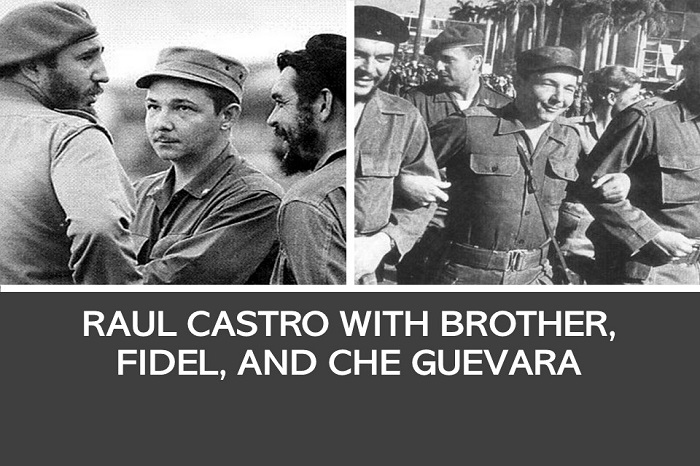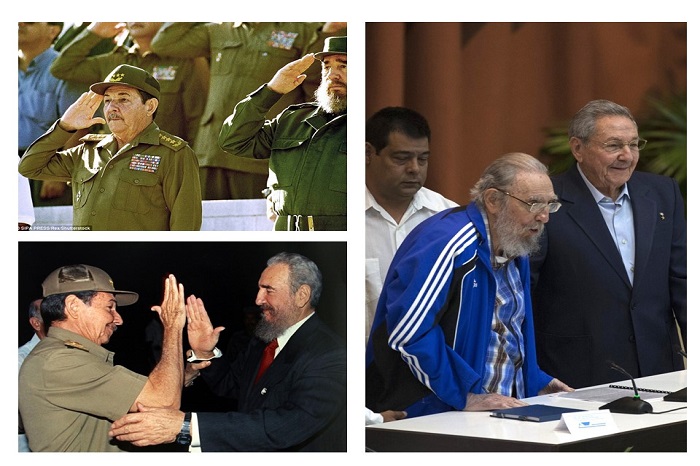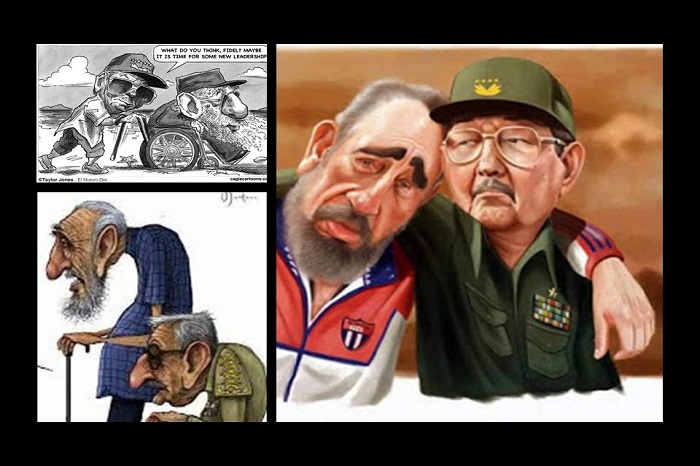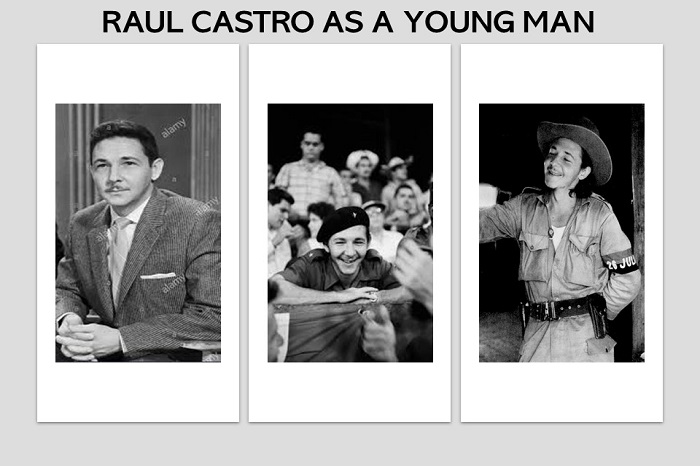It is always difficult to grow up in the shadow a more illustrious sibling, especially one who demanded singular attention and adoration. That is what Raul Modesto Castro Ruz had to deal with all his life. One can only imagine how much it affected his psyche and ego in his formative years.
In the eyes of many, Fidel will always be better than his younger brother Raul. Fidel is the more beloved historical figure. He has elevated to demigod status in Cuba and beyond. Fidel was the standard bearer of the Cuban Revolution. Only his sidekick, Ernesto “Che” Guevara, has achieved a similar larger-than-life persona in the history books.
Fidel (aka El Caballlo as a young man) is the antithesis of the younger brother, Raul. Fidel was the tall, athletic jock who was gifted enough to try out as a pitcher for Major League baseball. Raul was the thin, short, and long-haired bohemian who preferred drinking and gambling to studying.
The temperament of the two brothers were polar opposites as well. While Fidel was the fiery public speaker who become a firebrand student leader at the University of Havana. Raul was the shy, silent operator who abhorred public speaking.

Let’s face it, Raul’s name will never be spoken in the same breath as Che’s or Fidel’s. Yet, one has to wonder what Fidel and Che could have achieved without Raul. In spite of his perceived shortcomings, Raul has played a very important role in the Revolution and in the succeeding regime that Fidel led. He was the one doing the dirty work in the background.
It was Raul’s responsibility as Cuba’s Defense Minister to manage and control the Cuban Armed Forces (FAR). The Armed Forces was true glue that kept the country together during the turbulent years of the Cold War and following the collapse of the Soviet Union.
It was Raul who led the Cuban Armed Forces during its most trying times of the nascent regime. From fighting the anti-Castro guerillas in the Escambray Mountains to the Bay of Pigs and to the dark days that followed the execution of General Arnaldo Ochoa in 1989 on bogus drug smuggling charges, Raul led the Cuban Armed Forces.
It was Raul, being the more principled Socialist, who managed the relationship with the Soviet Union. He negotiated with the Russians directly, which allowed Cuba to build a strong Cuban Armed Forces. As a result, Cuba was able to send fighting men to aid multiple Revolutionary Movements in Africa and Latin America.

When the Soviet Union fell, Fidel would turn to Raul, with the help of now-cashiered Carlos Lage, to help restructure Cuba’s economy in order to survive. Raul led the opening of the country’s tourism industry, and authorized a few private enterprises and joint ventures with foreign investors.
When outside observers began theorizing how Cuba would survive without Fidel, they had no clue how prepared Raul was to assume the mantle of leadership. After all, he had something that Fidel lacked (or refused to have). Raul had pragmatism. He was a realist.
It was deemed very improbable that Raul would radically alter the Statist Cuban economy. After all. Raul is the true “Communist” hardliner between the Castro brothers. As a young man, he attended a youth socialist meeting in Vienna in 1953. Yet, he was the one who instituted the on-going economic “updating” (he’s allergic to using the word reform).
It was also deemed very improbable that the dropout Raul would be a much better economic manager than his older brother. After all, it was Fidel who was considered an up-and-coming lawyer out of University of Havana in his youth. Yet, there is no doubt that Raul will leave Cuba in a much better economic shape to his successor than the one handed over to him by his older brother in 2006.

It was also deemed improbable that the Sierra Maestra campaign veteran Raul would be the one to agree to a rapprochement with the US. Yet, it was he who agreed to extend an olive branch to US President Barack Obama. Nowadays, both the US and Cuban flags fly in their respective Embassies in Havana and Washington D.C. This would have been unthinkable even just a few years ago when George W, Bush roamed the White House.
Sure, Raul had to remark “ganamos” (we win) when he reported the rapprochement to a rubber-stamp Cuban National Assembly. Deep inside, he knew that this was as much as a victory to the White House and Obama. One thing that will not change is the rhetoric even with all the opening that has been achieved. There is, after all, the US-imposed economic sanctions that still needs to be eradicated.
When his time of reckoning comes, Raul may come up short when his historical legacy is compared to that of Fidel. However, he can be content with the fact that when he finally departs from office he would have by then made a more significant impact on the well-being of his own people. Much more than what his older brother ever did.
The lesson to be learned from Raul’s legacy is that one can make a difference without hogging the limelight. One can do this by silently doing his or her designated work and efficiently learning the ropes. As they say, sometimes the best operators are the silent types.

Raul will always be known as the crazy one. This is due to his propensity to cracking jokes at the most inopportune moments. Or be remebered as the drunkard, for his supposed love for the bottle of rum. However, he has silently built up a positive cred for himself that would leave a lasting mark to Cuba.
For sure, he may not be a leader or influencer in the mold of Fidel. Yet, Raul has proven himself to be a more than competent manager and administrator. In these days when the flashy CEO is lionized by the press, sometimes, it is the more boring ones, the silent operators, who actually make a real difference.